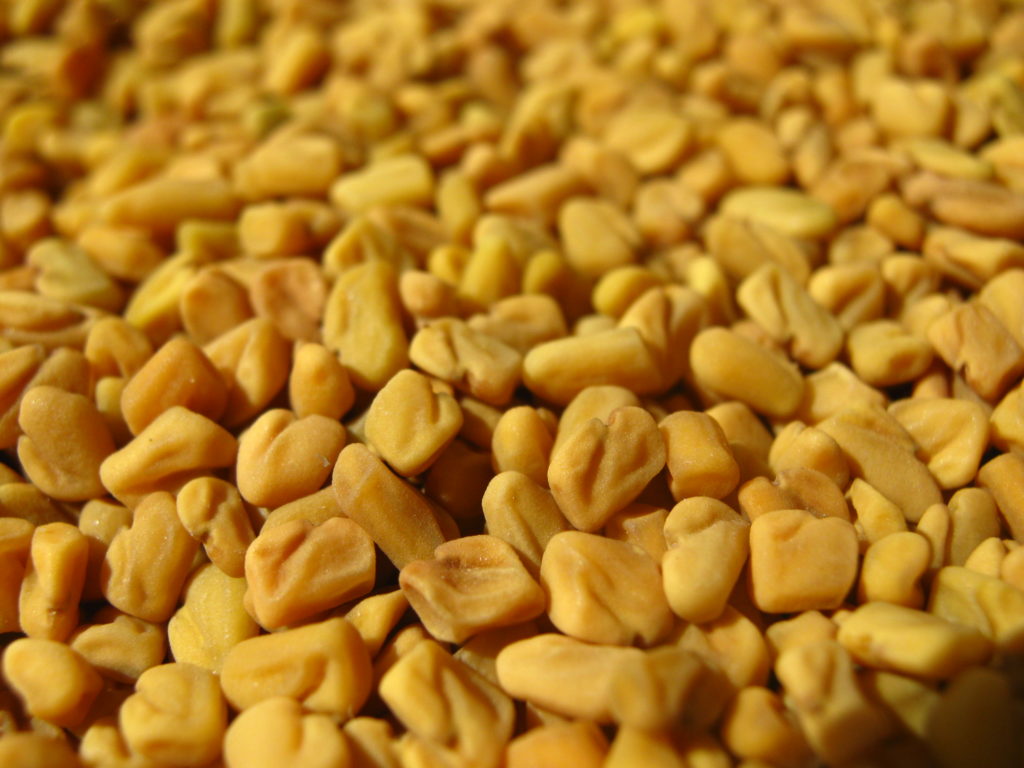How Fenugreek Is Good Help In Keeping
Diabetes Away?
Trigonella foenum graecum or Fenugreek, also known as ‘methi’, is a culinary and curative herb belonging to the Fabaceae family. It is a rather common spice that can be found in almost all households across India. This is a plant which bears green leaves and small, white flowers and golden brown seeds inside tiny pods. Owing to its impressive range of culinary and health benefits, fenugreek remains one of the most impressive herbs of all times.
An All Round Culinary Appearance
Fenugreek is a versatile herb, and has been used as a spice, a supplement, in teas as well as skin creams. This herb has immense nutrition profile, as it is rich in fibre and various minerals, such as iron and magnesium. Indians enjoy eating fresh green fenugreek leaves by adding them directly to their dishes. The dried leaves or seeds of this plant can also be added while cooking in order to give the dish a sweet, nutty and a slightly bitter taste, and a distinct flavour. In addition to being included in various spice blends, it can also be seen as a flavouring agent in various foods and beverages.
On the Health Front
Various ancient systems of medication, including Ayurveda, have been touting fenugreek as a promising herb on various health grounds. It has been used to treat a host of health conditions, which makes it a popular herb in the world of alternative healthcare and medication. Let us zoom in on some of those benefits –
- Helps reduce fat absorption and controls appetite, and also allows us to stay away from obesity.
- Helps lower and regular cholesterol and triglyceride levels.
- Exhibits potent anti inflammatory properties.
- Reduces symptoms of heartburn.
- Offers relief from various discomforts associated with menstruation, menopause and POS.
- Owing to its hot nature, its consumption helps breastfeeding females increase the flow.
- This herb is also just as popular among men, as it offers relief in case of erectile dysfunction (ED) and hernia, etc.
- Helps address various digestive issues such as constipation, upset stomach and gastritis, etc.
- In case of inflammatory muscle and joint issues, warm compresses using methi seeds are quite effective.
Fenugreek for Health Conditions
Other than these, fenugreek is also effective in treating other health conditions such as beriberi, boils, mouth ulcers, chapped lips, bronchitis, tuberculosis, chronic cough and kidney ailments, etc. Owing to such an exhaustive range of benefits, the fenugreek extract is used in the preparation of various traditional medications. In this article, however, we shall focus on its effectiveness in preventing and treating symptoms of diabetes.
Fenugreek for Diabetes
Fenugreek is especially famous for its ability to lower blood sugar. An abundant presence of soluble fibre and certain chemicals in fenugreek helps slow down the digestion process. Galactomannan is an essential constituent of fenugreek that brings down blood glucose levels, and improves glucose tolerance. This gives our body enough time to absorb the carbs and sugar, and also prevents sudden spikes of sugar levels from happening in the first place. Interestingly, fenugreek has also been observed to be helpful in promoting sugar absorption by increasing insulin production and supporting the insulin function.
Fenugreek also contains 4-hydrohyisleucine, an amino acid with some incredible anti- diabetic properties. It helps enhance insulin secretion under some extreme hyperglycemic conditions. It also increases insulin sensitivity. All these properties of fenugreek makes it one of the most potent herbs in addressing Type I and Type II diabetic conditions.
How to Consume Methi for Best Results
- First thing in the morning, have two glasses of water in which fenugreek seeds had been soaked overnight. Or else, you could also add half to one tsp of fenugreek powder to a glass of lukewarm water and make a quick, morning beverage. Drinking this methi water daily regularly will not only keep a tab on your blood sugar levels, but also prevents bloating and the problem of water retention in the body.
- Chewing on some methi seeds some 2-3 times a day, on the other hand, could make you feel satiated quicker and for longer. This helps in preventing sudden spikes in blood sugar, and also keeps us away from weight gain and obesity.
- You could also prepare methi dana chai by adding a tsp of fenugreek leaves and seeds in a glass of hot water. Allow it to simmer for 10-15 minutes, strain and the tea is ready. You could add some lemon juice and honey to taste, and relish this delicious yet therapeutic cup of methi chai!
About the Author:
Dr Sonica Krishan is Author and Speaker in the areas of Healthy and Joyous Living through Ayurveda, Meditation, Yoga and other Contemplative practices. She is a leading Ayurveda Professional in India. She is also Health Writer, Columnist, Editor, Ayurveda Consultant and Holistic Healing Coach. Dr Sonica is open for National as well as International Collaborations with interested people / institutions in fields of Ayurveda, Meditation and Yoga.
Related Posts:
Ayurvedic Approach To Treat Diabetes
Ayurveda For Diabetes – Ayurveda Herbs And Home Remedies For Diabetes Management

